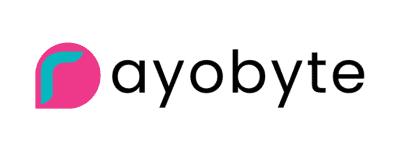The Best Proxies for Android in 2026
The use of a proxy server on websites is nothing new; it’s a popular tool among both businesses and individuals. But did you know that a proxy can do wonders on your Android smart device as well?
This article explores the best proxies for Android. We tested each provider, compared their features and the price, so you can make an informed choice before buying.

The Best Proxies for Android in 2026:

1. Decodo (formerly Smartproxy) – robust proxies for any Android device.

2. Webshare – flexible and customizable service.

3. SOAX – Android proxies with flexible rotation and targeting options.

4. Bright Data – the most versatile Android proxies.

5. NetNut – Android proxies for large scale use.
What is an Android Proxy
An Android proxy is a server that stands between your smart device and the internet. When you connect through a proxy, your request is first sent to the server and only then to the target website or app. During this process your IP address and location is changed, so it appears as if the requests are coming from a different user.
On Android, proxies can be configured for individual apps or for the entire device. If you’re not sure how to set up a proxy on Android, we’ve prepared an extensive guide.
Learn how to configure the Android proxy settings on your phone or tablet.
Why Use a Proxy on Android
Using a proxy on your Android device has several benefits. Here are some reasons why you might want to use a proxy on Android:
- Privacy. When you connect to the internet through a proxy, the websites you visit see the proxy’s IP address instead of your own. This makes it more difficult for websites, advertisers, or malicious actors to track your online activities and identify your location.
- Bypass geo-restrictions. Some websites and apps restrict access based on your location. When you use a proxy server from a different country, you can access content that would be unavailable in your region, for example, streaming services, accessing restricted websites, or using apps that are not available in your country.
- Faster browsing. Proxies can cache copies of websites and data you’ve already accessed. This method reduces the time it takes to load the website in the future.
- Avoid IP bans. By using a proxy with a different IP address, you can bypass IP-based bans.
- Manage network traffic. If you manage multiple Android devices, proxies can help to control and monitor network traffic. You can filter content, block access to certain websites, and manage bandwidth usage.
Types of Proxies for Android
There are four types of proxies you can use with your Android device:
- Residential proxies are sourced from other people:, their desktop and laptop computers, and sometimes even IoT devices like smart TVs. They are very difficult to detect.
- Datacenter proxies are hosted on servers owned by web hosting companies like Google Cloud, Amazon AWS, and similar providers. This sets them apart from residential proxies, which are tied to consumer internet service providers. However, websites can easily identify this type of proxy.
- Mobile proxies route your traffic through mobile devices connected to networks like T-Mobile, Verizon, and other carriers. This type is the most difficult to detect.
- ISP Proxies are linked to an internet service provider (ISP) but don’t involve end-user devices. Instead, they are hosted on servers rather than on residential devices like mobile phones or desktop computers.
Comparing Different Types of Android Proxies
| Residential | Datacenter | Mobile | ISP | |
| Advantages | ✅Difficult to detect. ✅Cheaper than mobile proxies. | ✅Fast and stable. ✅Cheap, often with unlimited traffic | ✅Hardest to detect. ✅Best for mobile-specific applications and social media. | ✅Difficult to detect. ✅Fast and stable. ✅Can include unlimited traffic. |
| Disadvantages | ❌Charge per gigabyte. ❌Slow and not always stable. | ❌Very easy to detect. | ❌Very expensive. | ❌Expensive. ❌Not many locations to choose from. ❌Easier to block than proper residential IPs |
The Best Proxies for Android in 2026
1. Decodo (formerly Smartproxy)
Robust proxies for any Android device.

Mobile proxies
10M IPs

ISP proxies
Not specified

Datacenter proxies
100K IPs

Residential proxies
155M IPs
- Locations: global (residential, mobile); 9 countries (ISP); 5 countries (rotating datacenter)
- Support: award-winning 24/7 support via chat or email
- Extras: API, browser extension, anti-detect browser, extensive documentation
- Free trial: 3-day free trial (residential); 14-day money-back guarantee (ISP, mobile, datacenter)
- Pricing starts from:
– Residential: $3.5 for 1 GB.
– Datacenter: $10 for 100 IPs ($0.1/IP) or 50 GB ($0.6/GB)
– ISP: shared starts at $28 for 2 GB ($14/GB) or $12.50 for 25 IPs ($0.5/IP). Dedicated – $35 for 10 IPs ($3.50/IP).
– Mobile: $4 for 1 GB
Decodo offers shared and private datacenter, residential, ISP and mobile proxies that can be used on any Android device. You can access the full IP pool (except for IP-based datacenter proxies) and choose any country you can think of.
The service impressed us with its performance. During our tests, its proxies (notably, mobile and residential) were at the top two positions in terms of both success rate and response time.
Beyond performance, the provider excels in user experience with comprehensive documentation and 24/7 award-winning customer service. You can also benefit from free apps like an antidetect browser and a proxy address generator.
All Decodo’s networks have competitive prices – the provider falls between budget and premium options. So, if you value quality and don’t want to break a bank, Decodo is your best choice.
Read the Decodo review for more information and performance tests.
2. Webshare
Flexible and customizable service.

ISP proxies
100K IPs

Datacenter proxies
Not specified

Residential proxies
80M IPs
- Locations: global (residential); US (ISP); 30 countries (dedicated datacenter)
- Support: via email and chat (6AM-6PM PST)
- Extras: API, basic documentation
- Free trial: a free plan with 10 shared addresses is available.
- Pricing starts from:
*depends on add-ons
– Residential: $3.5 for 1 GB
– Datacenter: $2.99 for 100 IPs ($0.03/IP)
– ISP: $6 for 20 proxies ($0.3/IP)
Webshare offers datacenter (shared, dedicated, rotating), residential, and ISP proxies. The provider stands out for its flexibility and customizable subscription. You can select the number of IPs in preferred locations and adjust things like traffic, concurrency, and network priority. The provider has flexible refresh options, from individual IP replacements to full proxy list refreshes. You’ll also find a user-friendly interface.
During our tests, Webshare’s rotating datacenter proxies showed an excellent success rate, although its residential IPs were mediocre. Webshare is an affordable option, with pricing below the market average, and new users receive 10 free datacenter proxies.
However, the provider has limited targeting options, so it’s less suitable for location-sensitive tasks.
Read the Webshare review for more information and performance tests.
3. SOAX
Android proxies with flexible rotation and targeting options.

Mobile proxies
30M IPs

Datacenter proxies
Not specified

Residential proxies
155M IPs
- Locations: global (residential, mobile); 5+ countries (rotating datacenter)
- Support: 24/7 via live chat and tickets
- Extras: reporting API, customer success manager
- Free trial: 3-day trial for $1.99 available
- Pricing starts from:
– Residential: $4 for 1 GB
– Datacenter: $0.8 for 1 GB (minimum 5 GB)
– Mobile: $4 for 1 GB
SOAX offers residential, mobile, and datacenter proxies. Like the top competition, the provider also has a large proxy pool covering nearly all countries in the world.
SOAX’s proxies are reliable and decently fast, especially in the US. The provider stands out with flexible rotation settings and precise targeting down to the city and ASN level.
SOAX also provides excellent customer service and competitive pricing. You can pay as you go or get a plan for better rates.
4. Bright Data
The most versatile Android proxies.

Mobile proxies
7M IPs

ISP proxies
700K IPs

Datacenter proxies
770K IPs

Residential proxies
72M IPs
- Locations: global (residential, mobile); 50 countries (ISP); 100+ countries (rotating datacenter)
- Support: 24/7 via live chat, tickets, dedicated account manager
- Extras: API, browser extension, Proxy Manager, extensive documentation
- Free trial: 7-day free trial for businesses; up to 15 datacenter IPs and 2 GB/month for free
- Pricing starts from:
– Residential: $8.40 for 1 GB
– Datacenter: Very flexible and depends on the add-ons. Starting from $0.11/GB + $0.8/IP
– ISP: $15/GB + $0.5/IP
– Mobile: $8.40 for 1 GB
Bright Data is another premium proxy provider with residential, datacenter (shared, rotating, dedicated), ISP, and mobile proxies. It has one of the largest proxy networks with any country worldwide.
The provider is rich in features and highly customizable. For example, its mobile proxies allow you to select a specific mobile carrier, customize the rotation settings to your preference, and use an unlimited number of IPs at once. In short, with Bright Data you’ll get any feature you can think of.
Performance-wise, the provider delivers a good success rate, but the response time of its mobile proxies could be improved. Otherwise, its residential and datacenter proxies are fast.
The main downside comes down to a higher pay as you go price, and steep subscription cost. Also, Bright Data’s powerful features might be too much for first-time users.
5. NetNut
Android proxies for large scale use.

Mobile proxies
1M IPs

ISP proxies
1M IPs

Datacenter proxies
220K IPs

Residential proxies
85M IPs
- Pool size: 200+ countries (residential); 100+ countries (mobile); 30+ (ISP); US (rotating datacenter)
- Support: 24/7 via email, live chat, phone, Skype (larger plans)
- Extras: API (for resellers), mediocre documentation
- Free trial: 7-day free trial for businesses.
- Pricing starts from:
– Residential: $99 for 28 GB ($3.53/GB)
– Datacenter: $100 for 100 GB ($1/GB)
– ISP: $99 for 7 GB ($14.40/GB)
– Mobile: $99 for 13 GB ($7.60/GB)
NetNut also focuses on the larger customers. You can get its shared datacenter, residential, ISP, and mobile proxies. The addresses come from large IP pools and up to 150 locations.
NetNut’s infrastructure has improved over the years, and most of its proxies achieved over 98% of success rate. So, if you’re an experienced user or need proxies at scale, NetNut should be your go-to choice.
However, NetNut only offers a subscription-based model and the entry price starts from $99, which is pretty steep.
6. Infatica
Residential proxies with many targeting options.

Mobile proxies
5M IPs

ISP proxies
Not specified

Datacenter proxies
5K IPs

Residential proxies
15M IPs
- Locations: global (residential); 100+ countries (mobile); 16 countries (ISP); US (datacenter)
- Support: 24/7 support via tickets, chat or email
- Extras: extensive documentation
- Free trial: 3-day trial for $1.99 available
- Pricing starts from:
– Residential: $4 for 1 GB
– ISP: $5 for 1 IP
– Datacenter: from $1.10 to $4.12
– Mobile: $8 for 1 GB
Infatica is a smaller provider that targets small to medium businesses. You can get its residential, mobile, and shared datacenter proxies.
Infatica’s residential proxies come with versatile location targeting options: by country, city, or ASN, and at no extra cost. The proxies rotate by default, but you can hold sticky sessions from 5 to 60 minutes.
While we didn’t test Infatica’s datacenter proxies, the residential IPs performed well, though with a slightly higher error rate than other services on this list. Despite this, the proxies were fast.
Infatica offers competitive prices for enterprise plans. The provider recently introduced a pay-as-you-go option alongside its subscription model. However, it’s worth noting that Infatica’s mobile IPs remain among the most expensive in the market.
7. Rayobyte
Flexible datacenter proxies with non-expiring traffic.

Mobile proxies
Unknown size

ISP proxies
Not specified

Datacenter proxies
Unknown size

Residential proxies
Unknown size
- Locations: 100+ countries (residential, mobile); the US (ISP); 4 countries (rotating datacenter)
- Support: 24/7 support via email, ticketing system, or live chat
- Extras: API (for resellers), extensive documentation,
- Free trial: 2-day free trial available
- Pricing starts from:
– Residential: $7.50 for 1 GB
– Datacenter: from $5 for 5 IPs ($1/IP) (static); $0.60/GB (rotating)
– ISP: $5 for 1 GB (static); $7.50 for 1 GB (rotating)
– Mobile: $50 for 2 GB ($25/GB) or $2.50 for 1 IP
Rayobyte offers static and rotating datacenter, residential, mobile, and ISP proxies. It’s a good option for customers of all sizes.
While the provider doesn’t disclose the size of its proxy networks, it’s substantial. If you need dedicated datacenter proxies, Rayobyte will make sure you get what you came for; you get unlimited threads and unmetered traffic.
Rayobyte’s datacenter and residential proxies have a decent success rate, though they are a bit slow. The proxies rarely failed on their own during our tests, so they should be enough for simple tasks.
If you decide to stick with this provider, you can subscribe to a plan or get never expiring traffic with pay-as-you-go. The prices get more favourable (often below the market’s average) once you purchase more traffic.
However, Rayobyte has limited customization options – no custom rotation, no ASN targeting for mobile proxies, and mediocre customer support.
8. Proxy-Seller
Reasonably priced proxies for customers of all sizes.

8.5/10 ★
Use the coupon PROXYWAY to get 15% off any purchase and 39% off residential proxies.

Mobile proxies
Not specified

ISP proxies
Not specified

Datacenter proxies
Not specified

Residential proxies
15M IPs
- Locations: global (residential); 8+ (shared mobile) 18+ countries (dedicated mobile); 20+ countries (ISP); 50+ countries (datacenter)
- Support: 24/7 via live chat & email
- Extras: proxy checker, port scanner, IP tracer, IP ping checker, extensive documentation
- Free trial: 24-hour refund (datacenter, ISP & mobile), 3 days for $1.99 (residential)
- Pricing starts from:
– Residential: $7 for 1 GB
– Datacenter: $1.07 for 1 US IP
– ISP: $1.5 for 1 US IP
– Mobile: $10.11 for 1 IP
Proxy-Seller offers dedicated datacenter, ISP, residential, and mobile proxies. It mainly targets individual users or small businesses.
The provider’s proxy networks are flexible in terms of locations and pricing. The provider covers all locations worldwide and costs similar to other mid-range alternatives. You can pay for a timed subscription that ranges from a week to a year. There’s also an option to get as little as 1GB or 1 IP address. The prices don’t bite but scale better once you buy more proxies.
During our tests, the proxies performed well overall. They had a good success rate and were among the faster ones on this list.
The main drawback is that there’s no pay-as-you-go, but you can buy a 1GB plan and auto-renew it.
9. IPRoyal
Affordable Android proxies.

Mobile proxies
2.5M IPs

ISP proxies
500K IPs

Datacenter proxies
Not specified

Residential proxies
32M IPs
- Locations: global (residential); 7 countries (mobile); 31+ countries (ISP); 50+ countries (dedicated datacenter)
- Support: 24/7 via live chat
- Extras: proxy tester, extensive documentation, browser extension
- Free trial: none
- Pricing starts from:
– Residential: $7 for 1 GB
– Datacenter: $8.75 for 5 IPs ($1.75/IP)
– ISP: $1.80 for 1 IP
– Mobile: $10.11 for 1 IP
IPRoyal is a budget-friendly provider with residential, datacenter, ISP, and mobile proxies at hand. Its proxies have good location coverage and decently-sized pools.
The residential proxies have flexible filtering and rotation options. Datacenter and ISP proxies, on the other hand, lack these features, but they come with unlimited threads, domains, and a free monthly refresh. IPRoyal provides solid customer service and extensive documentation.
While IPRoyal’s performance has improved over the years, its residential proxies still can’t compare to the top options. Also, the provider has fewer unique IPs, so the services aren’t ideal for more demanding tasks.
10. Dataimpulse
Cheap Android proxies.

Mobile proxies
Not specified

Datacenter proxies
Not specified

Residential proxies
5M IPs
- Pool size: 100+ countries (residential); 190+ countries (mobile); 10+ countries (datacenter)
- Support: live chat, 24/7 via email
- Extras: API for resellers
- Free trial: none
- Pricing starts from:
– Datacenter: $50 for 100 GB ($0.5/GB)
– Residential: $50 for 50 GB ($1/GB)
– Mobile: $50 for 25 GB ($2/GB)
DataImpulse offers bargain residential, datacenter, and mobile proxies. You can get its proxies for as little as $1/GB with one condition – you need to spend at least $50.
Even though DataImpulse advertises one of the smallest residential proxy pools in the market, it has a higher number of unique IPs compared to larger providers like IPRoyal.
DataImpulse’s infrastructure did relatively well, but it was among the slower providers. For context, the top providers on this list returned a response over three times faster.
While DataImpulse is among the most affordable options, additional features like city, ASN, or ZIP code targeting cost extra.
Read the Dataimpulse review for more information and performance tests.








